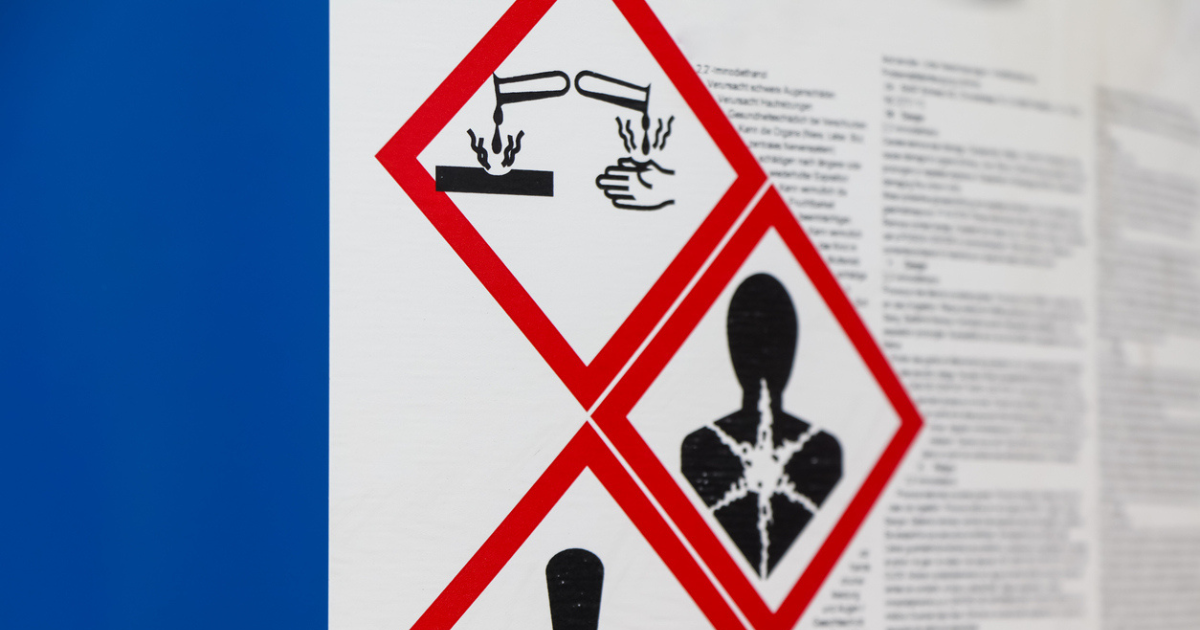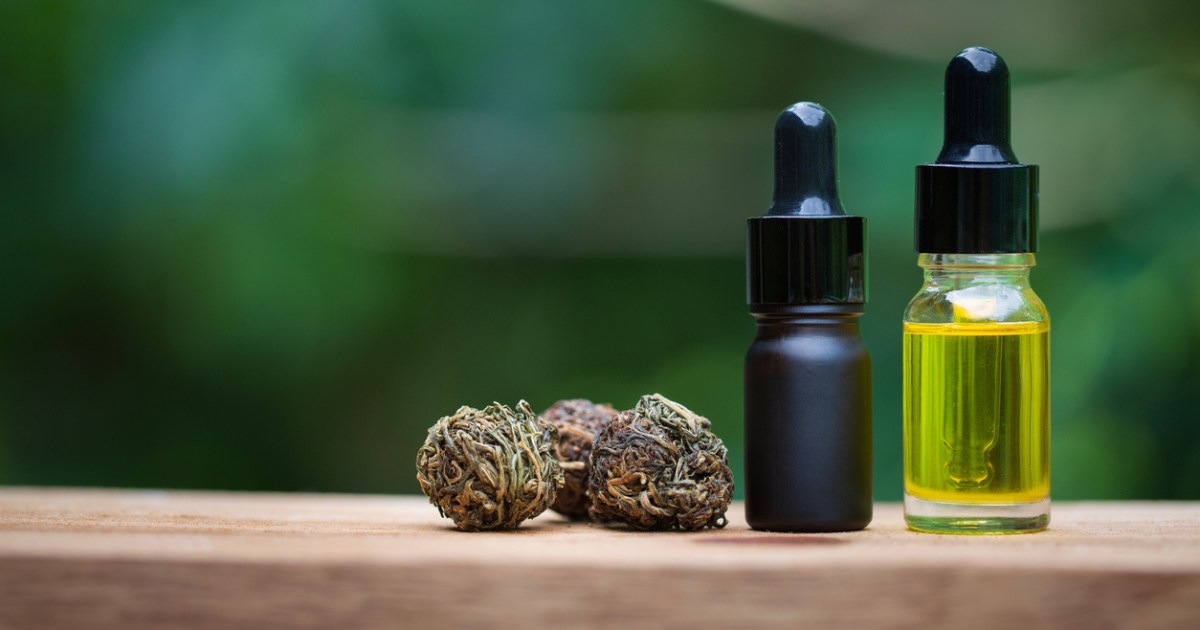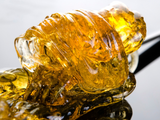Hydrocarbon Solvents in Cannabis Extraction
In cannabis extraction, not all solvents are created equal. Hydrocarbons like butane and propane have become the backbone of premium concentrates for their efficiency and surgical precision in isolating cannabinoids and terpenes. While CO2 and ethanol have their place in the market, hydrocarbons dominate where it matters most: flavor, potency, and customization.
What Are Hydrocarbons?
Hydrocarbons are organic compounds made entirely of hydrogen and carbon atoms. In extraction, butane (C₄H₁₀) and propane (C₃H₈) are the most common. Their properties, non-polarity, low boiling points, and high solubility make them ideal for selectively dissolving cannabinoids and terpenes while ignoring unwanted plant material like chlorophyll.
Fun fact: These same hydrocarbons fuel lighters and grills, but pharmaceutical-grade versions (like USALab’s) are purified to 99.9%+ for safe, compliant extraction.
What Is BHO?
Butane hash oil (BHO) is a concentrated cannabis extract created by using hydrocarbon solvents, like butane or propane, to dissolve and isolate cannabinoids and aromatic terpenes from the plant. This process strips away excess plant material, leaving behind a potent, flavorful product refined into popular forms like shatter, wax, or live resin.
At its core, BHO extraction depends on hydrocarbons’ ability to act as a “Goldilocks” solvent: efficient enough to pull high levels of active compounds yet gentle enough to preserve the delicate terpenes that define a strain’s aroma and taste.
But how does this actually work?
In a controlled environment, liquefied solvents pass through cannabis material, dissolving the desirable compounds. The mixture is then purged (using heat and vacuum) to safely remove residual solvents, resulting in a pure, concentrated end product.
Why Hydrocarbons?
Hydrocarbon extraction isn’t just about power. It’s about precision. Here’s how butane and propane solve the cannabis industry’s toughest balancing act: delivering potency, flavor, and efficiency.
Preserving What Matters
Hydrocarbons’ ultra-low boiling points (butane at 30.2ºF, propane at -43.6°F) let extractors work at low temperatures, shielding delicate terpenes from heat degradation. This produces concentrates bursting with the strain’s natural aroma and flavor, critical for premium products like live resin.
Maximizing ROI
As non-polar solvents, hydrocarbons bond seamlessly with cannabinoids, pulling over 80% THC and CBD from raw material. This high solubility means less solvent waste and higher yields, translating to lower costs per gram and faster breakeven points.
Controlled Customization
By blending solvents (e.g., 70% butane/30% propane) or adjusting purge temperatures, labs can shift textures from stable shatter to terpene-rich sauce. This flexibility lets producers cater to diverse markets without overhauling their processes.
Speed Without Sacrifice
Hydrocarbons dissolve cannabinoids in minutes, not hours. Faster cycles mean more daily batches and less oxidation, preserving vibrant color and potency even at scale.
Safety Meets Sustainability
Modern closed-loop systems recover over 95% of solvents for reuse, slashing costs and environmental impact. Paired with rigorous purging (residuals <5,000 ppm), hydrocarbons are both compliant and renewable.
The Power of Solvent Blends
Hydrocarbon extraction’s versatility isn’t limited to pure butane or propane. Blending solvents unlocks precision control over flavor, texture, and efficiency.
By mixing hydrocarbons like butane, propane, or even isobutane, labs can adjust their process to meet exact market demands.
Propane’s ultra-low boiling point extracts heat-sensitive terpenes (like limonene or linalool) that butane might miss.
70/30 blends of butane and propane create saucy live resin with high terpenes content, while 90/10 blends yield stable shatter for easy handling and storage.
Unlike pure solvents, blends like 80/20 butane/propane reduce purge times significantly.
Solvent blends are a competitive edge. Whether chasing terpene-rich live resin or Instagram-worthy diamonds, blending lets you dial in outcomes that pure solvents can’t match.
Risks & Safety Measures

While BHO extraction offers unmatched quality, hydrocarbons demand respect. Ignoring safety protocols isn’t just risky. It’s catastrophic. Here’s how to mitigate the top risks and keep your lab, team, and products protected.
Flammability
Hydrocarbons like butane and propane are highly flammable. Leaks or sparks can trigger explosions. Use only certified closed-loop equipment to contain solvents and prevent exposure to air or ignition sources.
Install spark-resistant lighting, ventilation, and electrical systems that comply with OSHA and NFPA standards. Keep open flames, including lighters, cigarettes, or unshielded tools, out of extraction areas.
Residual Solvents
Improper purging leaves solvents in the final product, risking consumer health and regulatory non-compliance. Heat extracts under a controlled vacuum to evaporate residuals under the safety threshold for butane and propane. Partner with labs using gas chromatography to verify solvent levels before products hit shelves.
Operator Exposure
Inhaling hydrocarbons or skin contact can cause dizziness, burns, or long-term health issues. All staff handling solvents must wear nitrile gloves, goggles, and respirators. Industrial-grade HVAC systems should be used to maintain airflow and prevent vapor buildup.
BHO’s rewards outweigh its risks – if you prioritize safety. Investing in certified equipment, rigorous testing, and trained personnel isn’t optional. It’s the price of playing in the premium extract game.
Common Misconceptions About Hydrocarbons
Hydrocarbon extraction is often misunderstood, leading to myths that overshadow its benefits. Let’s debunk the top misconceptions and set the record straight.
All BHO Has Dangerous Solvent Residuals
When produced in licensed labs using closed-loop systems and proper purging (via vacuum ovens), BHO contains under 5,000 ppm residual solvents, well below safety thresholds set by OSHA and state regulators.
Hydrocarbons Only Work for THC
Hydrocarbons are non-polar solvents, making them equally effective at extracting CBD, CBG, and other minor cannabinoids. This versatility supports full-spectrum products for both recreational and medicinal markets.
Hydrocarbon Extraction Is Outdated
Hydrocarbons remain the gold standard for high-end concentrates like live resin and diamonds. Innovations like terpene analytics and automated closed-loop systems keep them at the forefront of extraction tech.
Hydrocarbons Are Environmentally Harmful
Modern closed-loop systems recover most of the solvent used for reuse, drastically reducing waste. Pair this with energy-efficient equipment and hydrocarbons become a sustainable choice for high-volume producers.
DIY Hydrocarbon Extraction Is Safe
Open-blasting (DIY methods) is illegal and dangerously explosive. Professional setups use closed-loop systems, explosion-proof facilities, and rigorous training, which are the cornerstones of safe, legal production.
BHO vs. Other Solvents
|
Factor |
BHO |
CO2 |
Ethanol |
|
Terpene Retention |
Best |
Moderate |
Least* |
|
Cannabinoid Yield |
Highest |
Moderate |
Low-Moderate |
|
Speed |
Fastest |
Slowest |
Slow + Post-Processing |
*Ethanol requires cryo-freezing to improve terpene retention, adding cost.
Results vary by strain, equipment, and technique.
FAQ
Q: Is BHO safe?
A: Yes, when purged correctly and produced in certified labs.
Q: Can hydrocarbons be reused?
A: Closed-loop systems recover over 90% of solvents, reducing costs.
Q: What equipment is needed?
A: A closed-loop extraction system, including components like a solvent tank, purge oven, and explosion-proof facilities.
Q: Propane vs. butane?
A: Propane preserves terpenes better; butane is easier to purge. Blends balance both.
Q: Are hydrocarbons legal?
A: Yes, but regulations require licensed labs, testing, and OSHA/NFPA compliance.
Q: How do you test for residuals?
A: Use gas chromatography (GC) testing for safety compliance.
Q: Can I use fresh-frozen material?
A: Yes. Hydrocarbons excel for live resin with fresh-frozen terpene preservation.
Q: Cost vs. CO2/ethanol?
A: Higher upfront cost but better yield, flavor, and ROI for high-end markets.
Q: How long does the hydrocarbon extraction process take?
A: Typically, the process spans a few hours from setup to completion, depending on the scale and equipment.
The BHO and Hydrocarbon Difference

BHO and hydrocarbon extraction have reshaped the cannabis industry by delivering potency, flavor, and speed unmatched by CO2 and ethanol. With butane and propane, you can consistently produce high-quality concentrates.
At USALab, we’re here to simplify your journey. From pharmaceutical-grade solvents to cutting-edge equipment, our solutions are designed to help you master BHO extraction safely, sustainably, and profitably.
Ready to refine your process? Connect with our team to develop a hydrocarbon strategy that fits your goals.
Explore Popular Articles
How a Vac Oven Can Revolutionize Your Drying Process
In industries where precision drying is critical – such as pharmaceuticals, food processi...
Secrets to Mastering the Vacuum Purge: Process for Cleaner Extracts
Modern extraction systems pull out most solvents quickly, but those last traces demand careful...
Maintenance and Care 101: How to Prolong the Lifespan of Your Vacuum Oven
Vacuum ovens are indispensable in industries like pharmaceuticals, electronics, and cannabis process...




